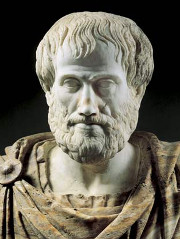This month we sit down with Julia Annas, Regents Professor of Philosophy at the University of Arizona, to talk about virtue ethics. Click here to listen to our conversation.
 Today we’re used to thinking of ethics as the study of how to act in certain situations. Given any particular hypothetical scenario, what would be the right thing for you to do? If your friend wants you to stay up late to help him study for an exam, but you yourself need to go to bed early in order to get a good night’s sleep for the exam, what do you do? This is the sort of thing we usually have in mind when it comes to ethics: ethicists devise sophisticated theories that tell us the most general laws of good behavior.
Today we’re used to thinking of ethics as the study of how to act in certain situations. Given any particular hypothetical scenario, what would be the right thing for you to do? If your friend wants you to stay up late to help him study for an exam, but you yourself need to go to bed early in order to get a good night’s sleep for the exam, what do you do? This is the sort of thing we usually have in mind when it comes to ethics: ethicists devise sophisticated theories that tell us the most general laws of good behavior.
But things were different in ancient Greece. In that setting, the question wasn’t really ‘What is the best way to act, given any set of cicrcumstances?’ so much as ‘How can I live the life of a good person?’ Or better yet, since the word ‘good’ is kind of vague, how can I live the life of a courageous person? How can I live the life of a compassionate person? These characteristics that we all aspire to have are called virtues. You can think of being a compassionate person as having a tendency to do compassionate things–but the point is that once you’ve taken the virtue ethics turn, these questions about what kind of person you are take center stage.
In our discussion, Julia Annas argues that thinking of ethics this way revitalizes the entire enterprise, giving philosophers a new set of problems to consider and rendering many old ones irrelevant. For example, it gives us the occasion to rethink what happiness is–is it a feeling? A matter of having all of your desires satisfied? An entire way of life?
Tune in to hear what our guest has to say on the matter!
Matt Teichman
Leave a Reply